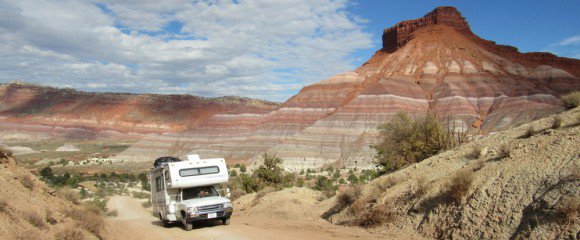How to Haul Less Weight in Your RV
Whether you are using your RV to travel full-time, packing up for a long road trip, or taking a quick weekend getaway, it’s always tempting to pack as much as you can fit.
This can add quite a bit of weight to your rig, but come on, we all know that we need all of this gear or we wouldn’t be packing it, right?
So let’s talk about some ways to drop the weight without needing to cut the gear. Here are some useful RV mods that will make your rig lighter, reduce wear and tear on your engine and brakes, improve your gas mileage, and still leave room for all your essentials.
Remove and replace your RV window treatments
The “lovely” window treatments that come with RVs are useful because they help block out the sun, but there is another lighter option. Remove these bulky things and replace them with blackout roller window blinds or shades. I prefer the blinds because when they roll up they are very tidy and leave max sun exposure. They even come in some cool custom designs.
If you don’t mind the sunlight coming in a little you can even opt for simple lightweight curtains. Sew your own or find travel inspired ones such as these cool map patterned blackout curtains.
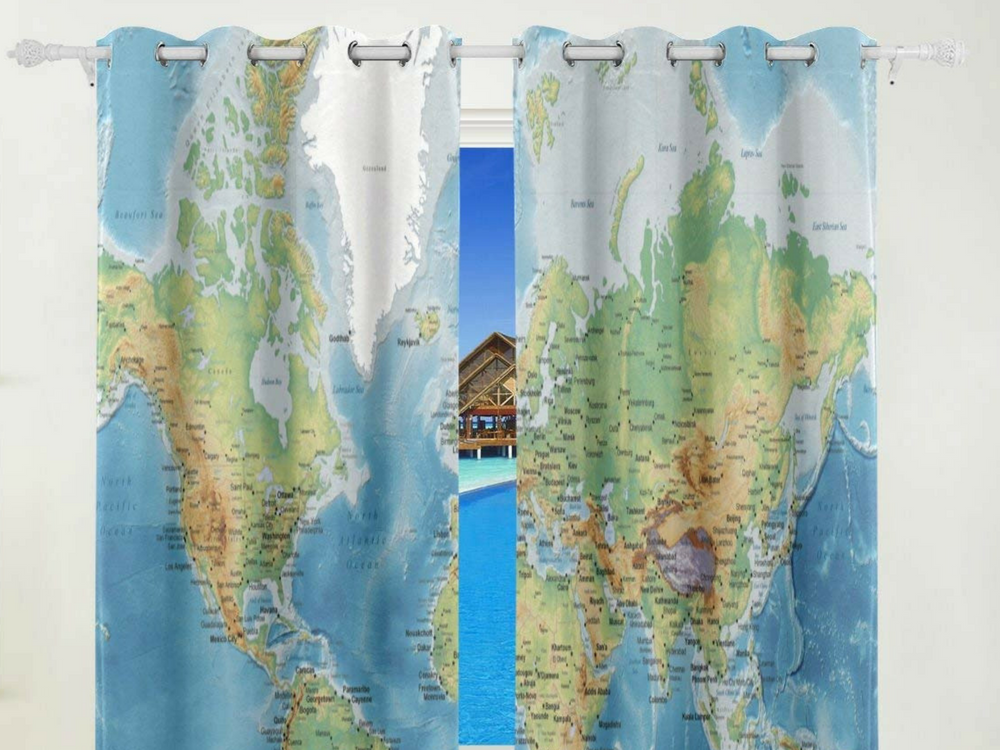
Replace your RV toilet/black tank combo with a compost toilet
Without getting too much into detail, let’s talk about how much liquid weight gets carried around in your black tank. It’s a lot. If you replace your RV toilet with a compost toilet you can remove your black tank completely which saves weight in itself. Plus, you are eliminating all that extra water weight that is necessary for operating a regular toilet.
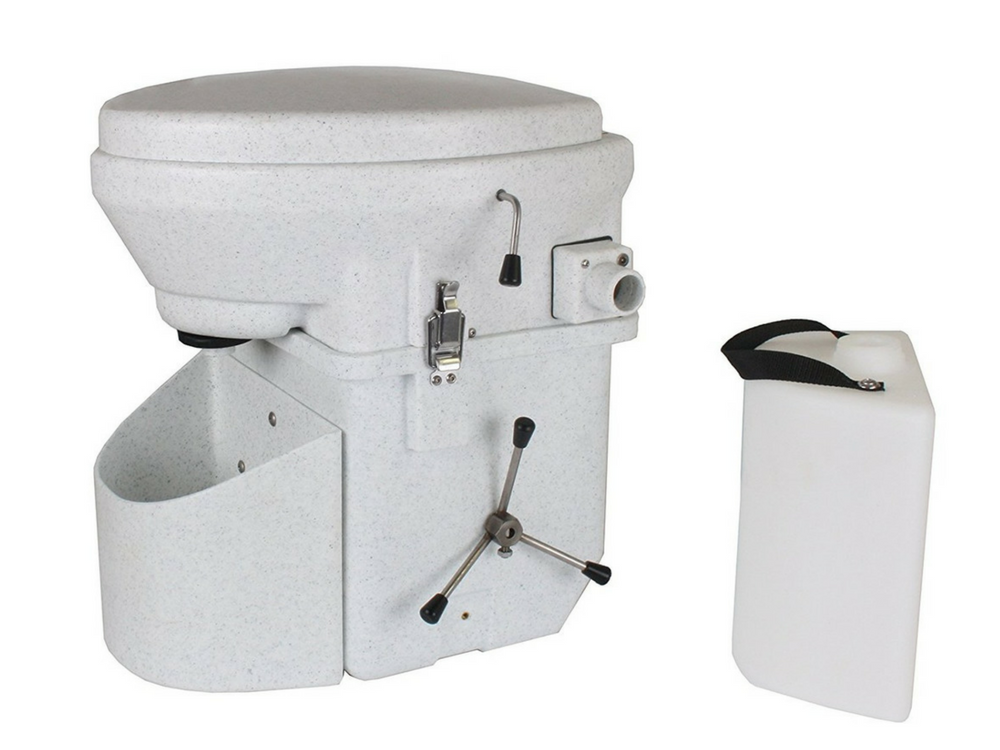
My neighbor has a compost toilet and the material that they use in it, coco coir, is extremely lightweight. The liquid part of the toilet holds 2.5 gallons so that doesn’t even become that heavy before it gets emptied into the campground toilet. The true weight comes in all that water you are flushing and carrying around in your black tank.
f you’re not up for investing in a compost toilet there are other alternatives for a lighter weight toilet system, including the basic portable toilet style.
Remove unnecessary cabinets, shelving, and drawers and replace with lightweight plastic bins or wicker baskets
To some people this might seem extreme, but if you’re looking to lose weight this can be a gold mine as this weight can add up. If there are any places that you have factory-installed drawers or shelves that you don’t absolutely need for organizing your things, just take them out and replace them with lightweight plastic bins, wicker baskets or nothing.
In some cases, the space may even become more useful if you have larger items that you need a space for. We had two drawers under our refrigerator that we removed to make room for some taller items that wouldn’t have fit in either drawer.
Don’t want to remove any of these factory-built things? Avoid adding extra weight by using only lightweight plastic shelving, bins, and baskets to organize items. Believe us, we love the look, smell, and feel of wood, but it’s just not practical in RVs.
Remove sliding doors and replace with curtains
If there are any doors that you never use or aren’t necessary for privacy purposes, remove them and replace them with a pretty hanging curtain. We’ve done this with doors that separated rooms in our Class A as well as the large sliding glass doors on our closet.
Simply use a basic curtain hanger, purchase a curtain and hem to length, or find some cool fabric and sew your own.

If you have a place to store them, keep these items as you might want to put them back in if you ever sell your rig.
Remove unnecessary exterior items
Have a satellite receiver on your roof that you haven’t used for years? How about a roof rack, ladder, or awning that’s broken or rarely gets used? If you use these things, but they are older, think about replacing them with new lighter weight models.
Another neighbor of mine had a 100-lb air conditioning unit on his roof that he chose to remove to make room for a roof rack to store a 60 lb inflatable kayak on. Remember how I talked about making room for the gear? Priorities, right? Not only did he make room for it, but still ended up 40 lbs lighter (well maybe not with the addition of the roof rack, but you get the idea).
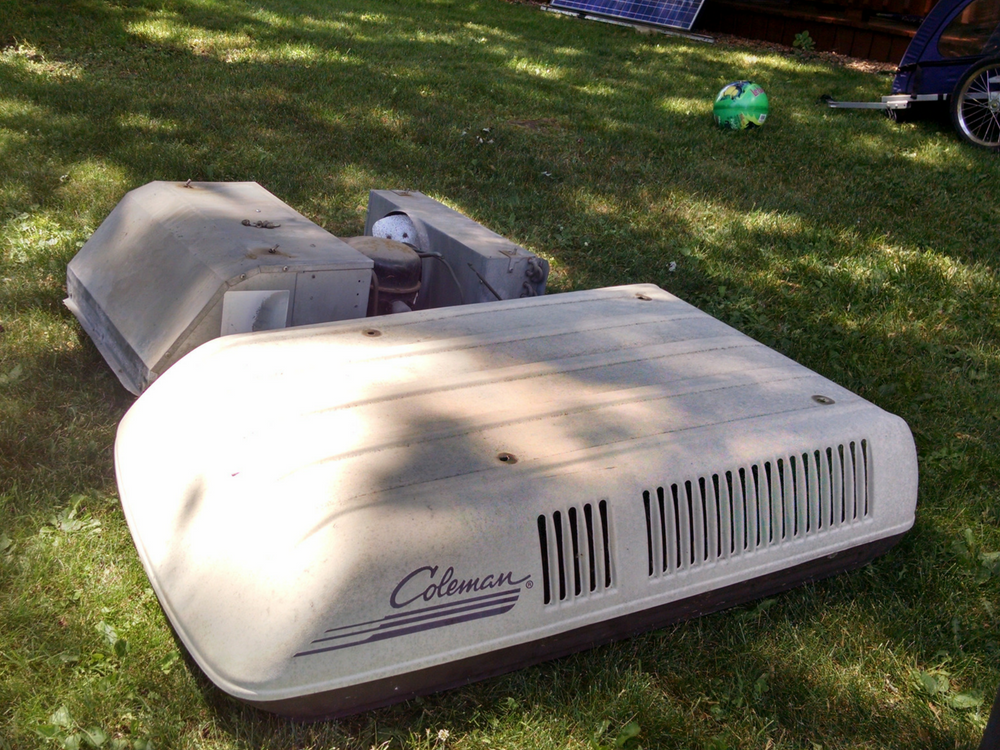
Do a walk around the exterior of your rig and really think about the things you see. What about that spare tire? This can be completely necessary if you off-road and can change your own tire or if you have a rig with an unusual tire size, but if you typically travel on standard roads and would call AAA if you got a flat tire anyways, then why keep it on your rig?
We highly recommend storing any large, expensive items you remove from your RV. It will come in handy having them if you ever try to sell your rig.
Install a hot water heater bypass valve
If you’re looking to camp off-grid there’s a good chance you won’t have the power or want to use the propane to run your hot water heater. If that’s the case then why carry the extra 7 gallons of water that will be stored in there?
If you add a bypass valve to your hot water heater it will allow you to shut off the water to it and drain it, losing this water weight.
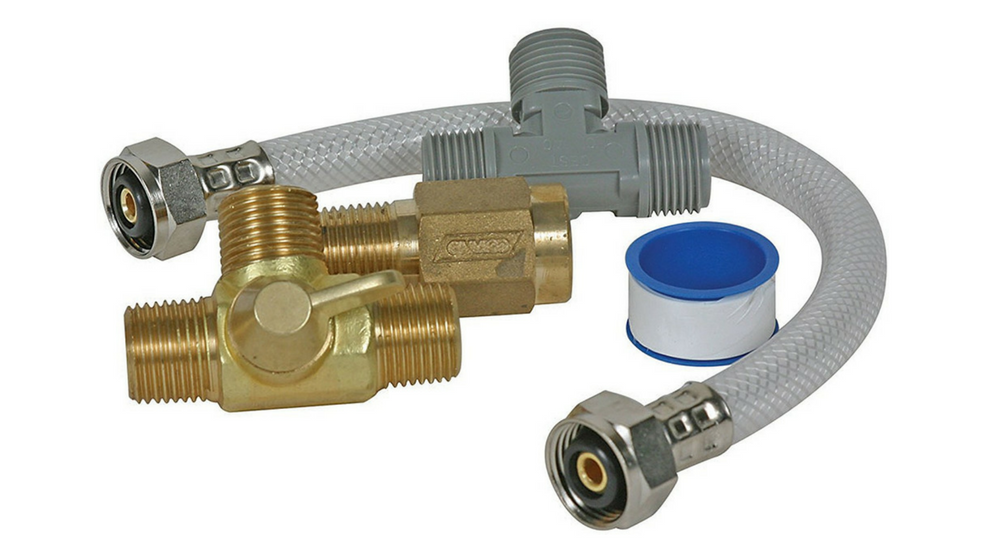
With the valve in place, you can still pump the water from your tank to your faucet, you just won’t be storing that extra water and weight in the hot water heater tank.
Use aluminum when doing any repairs
Aluminum is a very strong metal that is extremely lightweight. Using flat sheets work great for repairing holes in siding or like for us, patching a window that we needed to remove. If you are making structural repairs, the aluminum angle will give you strength with minimal weight.
We understand not all these tips will work for everyone, but hopefully they will give you an idea of where to start when looking to shed that little bit of weight so that you can keep loading up all that fun gear.
ARTICLES THAT MIGHT INTEREST YOU:
- The Solid Truth About Number Two
- 5 Reasons Why You Should Visit St Louis This Summer
- 10 Things to Consider When Choosing an RV Park
